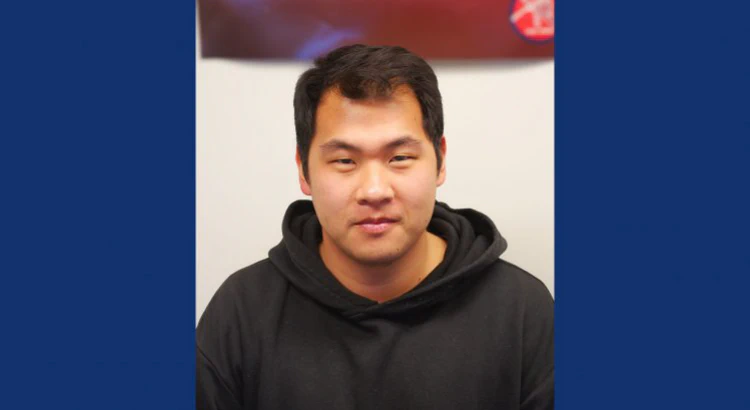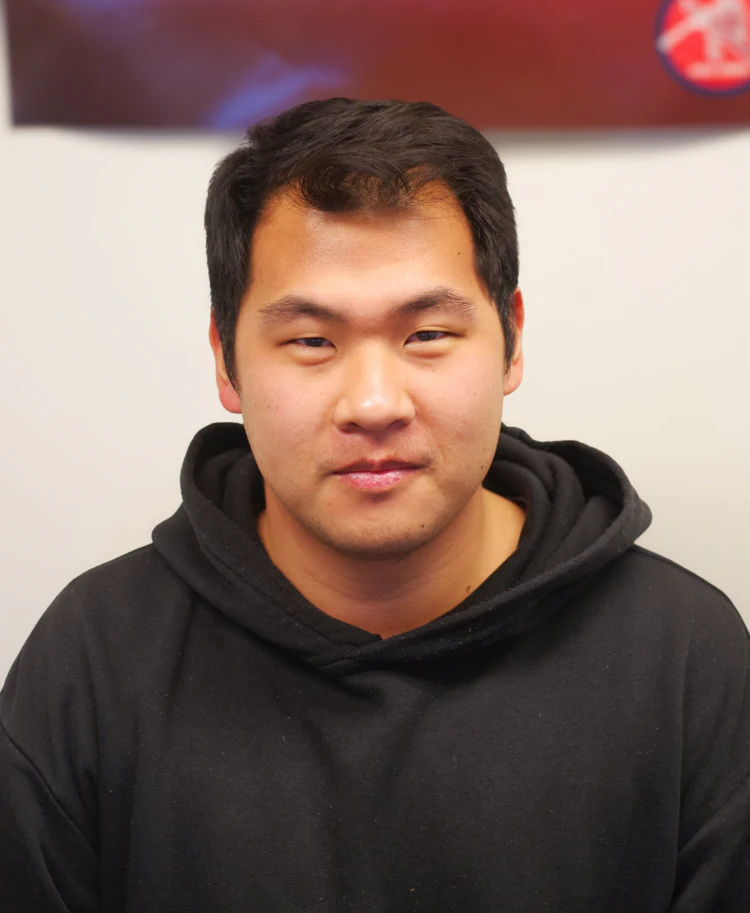
Konstantin Kim
Kim Konstantin, 26 years old, has been a PhD student at IRF at the office in Uppsala for two years, working within the Space plasma physics research programme.
Education and degree: B.Sc in Engineering Physics from Bauman Moscow State Technical University and M.Sc in Applied Mathematics and Physics from Moscow Institute of Physics and Tecnology.
What is the focus of your research as an PhD student at IRF?
– My research addresses the dynamic plasma processes in Titan’s ionosphere – the second-largest moon in the solar system. The ionosphere of Titan couples the neutral atmosphere of Titan and Saturn’s magnetosphere, creating a very dynamic and complex system. This coupling is responsible for many processes, e.g., loss of Titan’s atmosphere, dissipation of energy through collisions in the ionosphere and a self-consistent energy transfer between Titan and Saturn.
– Unlike Earth, Titan lacks continuous observations of its plasma environment. However, we are lucky to have the Cassini-Huygens mission, a joint NASA/ESA interplanetary mission to Saturn, which has successfully probed Titan during 127 close flybys. The research relies heavily on data analysis obtained during these flyby measurements. I use plasma measurements from Cassini-Huygens Radio and Plasma Waves Science suit, mainly the Langmuir probe, which was delivered by IRF, to derive local plasma density and temperature.
Why and how did you become a PhD student at IRF?
– When I was applying for a PhD position, I was looking for an interesting and challenging project related to space plasma physics. But most importantly, the hosting institute should also be closely related to the development of space instruments. Very few institutes in the world fit this description, and IRF is arguably among one of the best options. Throughout my bachelor’s and master’s studies, I spent a substantial amount of time reading papers from the IRF researchers, who have greatly contributed to the Mars and Venus Express, MAVEN, and Rosetta missions.
– Luckily, there was an announcement on the website and I decided to give it a shot. After the review of my application, I was invited to an online interview with my future supervisor and some other people from IRF. Before the interview, I was asked to make a presentation about my current research. The interview itself was relaxed and I had a great time. After the interview was done and after a few weeks of waiting, I was offered this position and without any hesitation I accepted it!
What might a typical working day look like?
– When I arrive at the office, I check my email and open my programming tools to check if nothing has crashed. After I’m all set, I start working on my research. It could be reading papers (and trying to find new ones), data processing, analysis and interpretation, discussion of methods, results, and conclusion with my colleagues and supervisors. This keeps me occupied for 80 percent of my time. For the rest, we also have 1-2 meetings or seminars to attend, but this number varies from one week to another.
– On top of that, PhD students at IRF have obligatory courses that are really fun yet might be demanding. Finally, many PhD students at IRF are engaged in teaching activities and sometimes in the supervision of bachelor and master projects, which also demand time and attention.
What opportunities and challenges are there as a doctoral student?
– The greatest opportunity I have at IRF is meeting amazing people all around the world who share the same passion for space research and beyond. It is a privilege working on something so interesting and important, such as space physics and having the possibility to contribute to your research area. I also appreciate an opportunity to develop and expand my professional skills and outlook while working with experienced scientists, such as my supervisors and other scientists at IRF.
– As a PhD student, time management is definitely the biggest challenge. One has to keep track of many activities, sometimes too many, and it might be depressing when you start falling behind. However, there are always people around you who can relate, help or just listen to you (especially, my supervisors and other PhD fellows). Sometimes moving to another country imposes on a person an enormous stress. I felt it myself, but what I love about IRF is that there are many people in similar situations, so you can at least struggle together or get some advice.
How would you describe IRF as an employer?
– The working environment at IRF is really friendly. If I have any issues, for example, with payments or documents, there is always Jenny, our accounts administrator, who knows how to handle all the possible problems. IRF also provided me with all the necessary software and hardware for work and also encouraged me to explore new useful tools. Overall, can’t complain.
Would you go to space if you had the opportunity?
– If there is a non-zero chance to find an extraterrestrial form of life, maybe an intelligent space octopus, then I would definitely do it!
